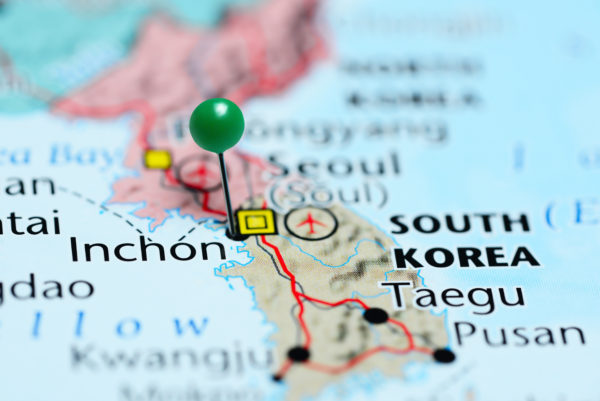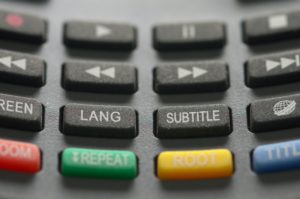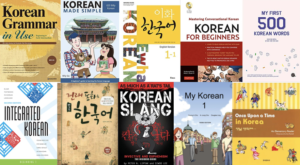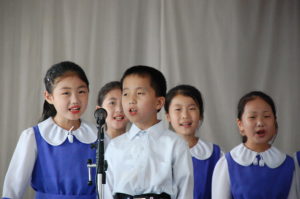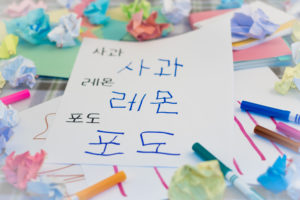Essential Korean Phrases For Your Next Adventure
You’re in for a treat if you’re traveling to Korea. But, to make the most of your vacation, you should know some basic Korean phrases. Knowing greetings, polite expressions, and emergency phrases can infinitely improve your holiday in Korea. You can navigate better if you get lost. You’ll receive better customer service. And most importantly, you can rest assured that you’ll be in safe hands if you speak a little bit of Korean. Use this list of 25 Korean survival phrases to build your vocabulary, and experience Korea like a local.
Formal vs Informal Korean Phrases
Before we get into the phrases, you should understand that the Korean language system has different levels of formality. In English, this division of formality doesn’t exist. But, in Korean, this hierarchy is very strict, both in the language and the culture.
The Korean honorific system dates back to the strict class systems of ancient Korea. These different speech levels reflect the speaker’s respect for the listener. As a new Korean speaker, it’s best to learn the standard polite speech. The last thing you want to do is accidentally offend a local.
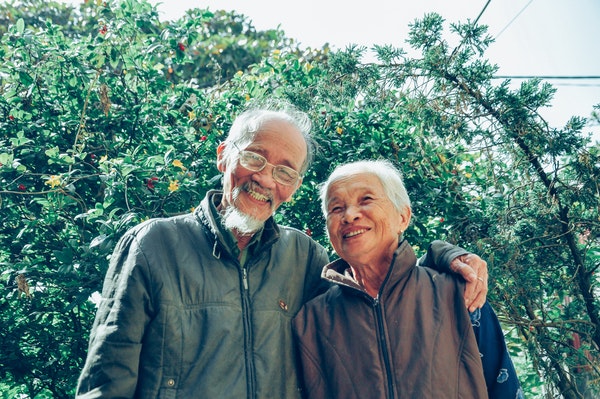
The Best Korean Phrases You Need to Know
Did you know that 80% of speech comes from 20% of our vocabulary? It’s true, it’s called the Pareto Principle. And it’s the key to learning a foreign language extremely fast. When you’re traveling to Korea, you’ll only need the most basic words and phrases to get by. Learn the essentials, and don’t waste time on anything else.
These 25 Korean travel phrases are exactly that. We collected them into four different categories, so you know which to use in a specific situation:
- Greetings
- Navigation
- Dining Out
- Emergencies
Along with the Hangul and Romanized Korean spelling, we also thought it’d be useful to include some explanation for Korean social situations you should be aware of. These can range from alternative meanings for the Korean phrases or even recommendations on how to pay at a restaurant. This gives you a little bit of insight into Korean culture.
Basic Korean Greetings
These are basic Korean words, but they’re the most crucial to know when you’re traveling to Korea.
1. “Hello!” – 안녕하세요! (ahn-nyung-ha-se-yo)
You can use this greeting at any time of the day. You can also reply in the same manner.
2. “My name is _____” – 제 이름은 ____ 입니다” (jeh ee-reum-un ____ eep-nee-da)
Use this simple phrase to introduce yourself to anyone in Korean.
3. “Nice to meet you.” – 반갑습니다 (bahn-gap-seup-ni-da)
This is a polite way to express your appreciation for meeting someone. It’s especially useful during formal situations.
4. “Thank you.” – 감사합니다 (kam-sa-ham-ni-da.)
If you need a simple way to say, “thank you”, then you should use this Korean phrase. You use it the same way you would in English situations.
5. “Excuse me/Just a moment.” – 잠시만요 (jam-shi-man-yo.)
This phrase comes in handy as you push your way through a crowd, get someone’s attention, or ask them to wait.
6. “I’m sorry.” – 죄송합니다 / 미안합니다 (Joe-song-ham-ni-da / Mi-an-ham-ni-da.)
This is a very important phrase to know. The Koreans have two ways to apologize. The first one is better for a time when you accidentally step on a stranger’s foot. The second is best for more serious situations, such as forgetting a birthday. Make sure you use the right one in the right situation.
7. “How are you?” – 어떻게 지내세요? (uh-dduh-keh ji-neh-seh-yo?)
Use this phrase if you want to ask someone how they’re feeling or about their day.
8. “I am good.”- 잘 지내요 (jal-ji-neh-yo)
If someone asks you how you are, you can respond with this phrase. It simply means that all’s well in your world.
9. “Goodbye.”- 안녕히 계세요 (ahn-nyung-hee geh-seh-yo)
안녕히 가세요 (ahn-nyung-hee gah-seh-yo) and 안녕 (ahn-nyung) work as well
When you’re saying good-bye in Korean, you must make sure that you’re using the right word. Say 안녕히 계세요 (ahn-nyung-hee geh-seh-yo) (which means “Please stay well.”) when you are leaving and the other person is staying.
You would use the Korean phrase, 안녕히 가세요 (ahn-nyung-hee gah-seh-yo) (which means “Please leave well.”) when you are staying and the other person is leaving.
The third good-bye phrase is 안녕 (ahn-nyung). This is an informal way to say goodbye to people you know well. Think of it as the English equivalent to “Bye!” or “See ya!”
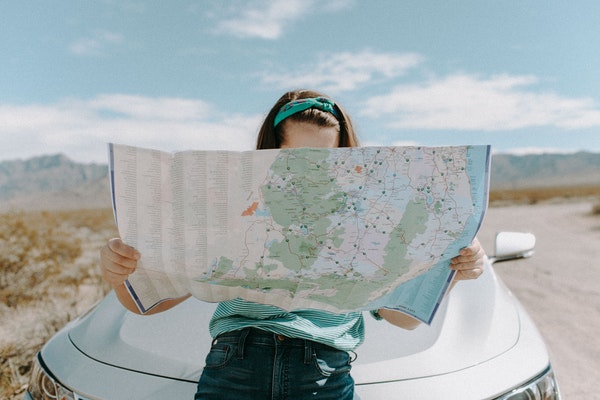
Navigating in Korean
When you’re in a foreign country, it’s easy to get lost. Luckily, with these Korean phrases, you can easily get around in Korea. Ask a Korean local, and they’ll surely try to help you.
10. “How much is it?” – 얼마예요 (Eol-ma-ye-yo?)
Important for your shopping trips in South Korea, this phrase is pretty much all you need for making purchases at malls, shops, and stores.
11. “Where is the bathroom?” – 화장실이 어디예요? (hwa-jang-shil-ee uh-di-eh-yo?)
In the world of travel, being able to find a bathroom is essential. Note that 어디예요 (uh-di-eh-yo), by itself, means “where is it.”
12. “Please take me to _____” – ______ (으)로 가주세요 ((ih)roh gah-ju-seh-yo)
You can use this phrase to tell a taxi driver of your destination or when you need a guiding hand. (When the place name ends with a consonant, use “으로,” otherwise use “로.”)
13. “Do you speak English?” – 영어 할 수 있어요? (yung-uh hal su-eet-suh-yo?)
It’s always more polite to ask people if they speak English in their native language rather than assume they speak your language. While you’ll find many Koreans (especially in big cities) know at least some basic English, you’ll get off to a much better start with any locals using this phrase.
14. “I don’t speak Korean well.” – 한국말 잘 못해요 (hahn-guhk-mal jal moht-heh-yo)
This nice warning that will prepare those who speak with you that you’re still a beginning language learner. You’re not saying you don’t speak the language. Instead, you’re saying that you need a bit of time to listen and remember the appropriate response.
15. “Please speak slowly.” – 천천히 말씀해 주세요 (chun-chun-hee mal-sseum-heh ju-seh-yo)
Use this phrase to politely request some speak slower when they talk to you.

Korean Phrases For Dining Out
Use these Korean phrases to order food in a restaurant. We recommend you try Korean dishes when you travel, they’re extremely tasty and very healthy. And who doesn’t like to eat!?
16. “Please give me _____” – _____ 주세요 (_____ ju-seh-yo)
To order your meal, simply say what you want and add 주세요 afterward. It’s short and simple!
17. “Bill, please.” – 계산서 주세요 (keh-san-suh ju-seh-yo)
Waiters in Korean restaurants often will not personally ask if you’ve finished your meal. So, once your stomach is satisfied and you’re ready to head out, ask for the bill. Also, in most Korean restaurants, you don’t pay at the table. Normally, you pay at the counter when you’re heading out.
18. “I have an allergy.” – 저 알러지 있어요 (juh ahl-luh-ji eet-suh-yo)
If you have an allergy, then you must say so. As delicious as Korean food is, the use of many ingredients in certain dishes can up the chances of the presence of a potential allergen. Notify your server of what you’re allergic to, preferably in Korean so that they know exactly what to exclude.
If you want to mention specifically what you’re allergic to like “I’m allergic to ___“, say “저 ___ 알러지 있어요 (juh ___ ahl-luh-ji eet-suh-yo)”.
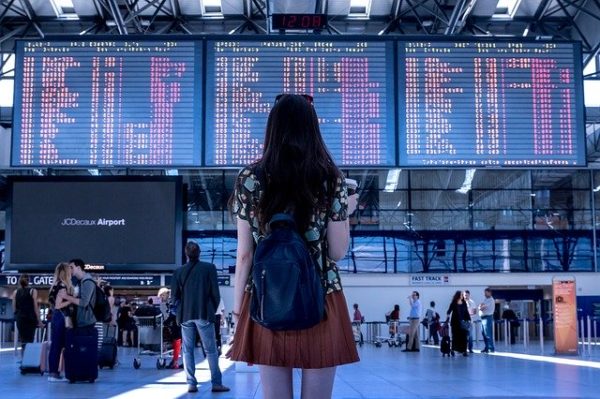
Korean Phrases For an Emergency
You’ll find that South Korea is a pretty safe country. Still, it’s better to be prepared. Be sure to memorize or keep a copy of these Korean emergency phrases. That way, you’ll get the help you need in any situation. They’re also pretty self-explanatory.
19. “This is an emergency.” – 아주 급해요 (aju geupaeyo)
20. “Where is the nearest police station?” – 제일 가까운 경찰서는 어디예요 (jeil gakkaun gyeongchalseoneun eodiyeyo?)
21. “Where is the closest hospital?” – 가장 가까운 병원은 어디예요? (gajang gakkaun byeongwoneun eodiyeyo?)
22. “Please call an ambulance” – 구급차를 불러 주세요 (gugeupchareul bulleo juseyo)
23. “Please take me to the hospital” – 병원에 데려가 주세요 (byeongwone deryeoga juseyo)
24. “Please help me” – 도와주세요 (dowajuseyo)
25. “Where can I get help?” – 어디에서 도움을 구할 수 있어요? (eodieseo doumeul guhal su isseoyo?)
Learn the Most Essential Korean Phrases
Koreans are incredibly kind people. They will for sure be very impressed that you took the effort to learn a few of their key phrases. And, if you enjoyed learning these, perhaps this is only the beginning of your Korean learning journey. Reaching fluency in Korean is entirely possible with the right language learning methods. And if you want to learn the most common words and phrases like these, you should download OptiLingo.
OptiLingo is a language learning app that’s built on scientifically proven teaching methods. You’ll get a lot of high-frequency words as part of your lessons, so you’ll learn exactly as the locals speak. And OptiLingo builds your speaking skills and foreign language confidence from day 1. The best language learning method is to speak, not type the language.
Learn more essential Korean phrases easily when you try OptiLingo today!

